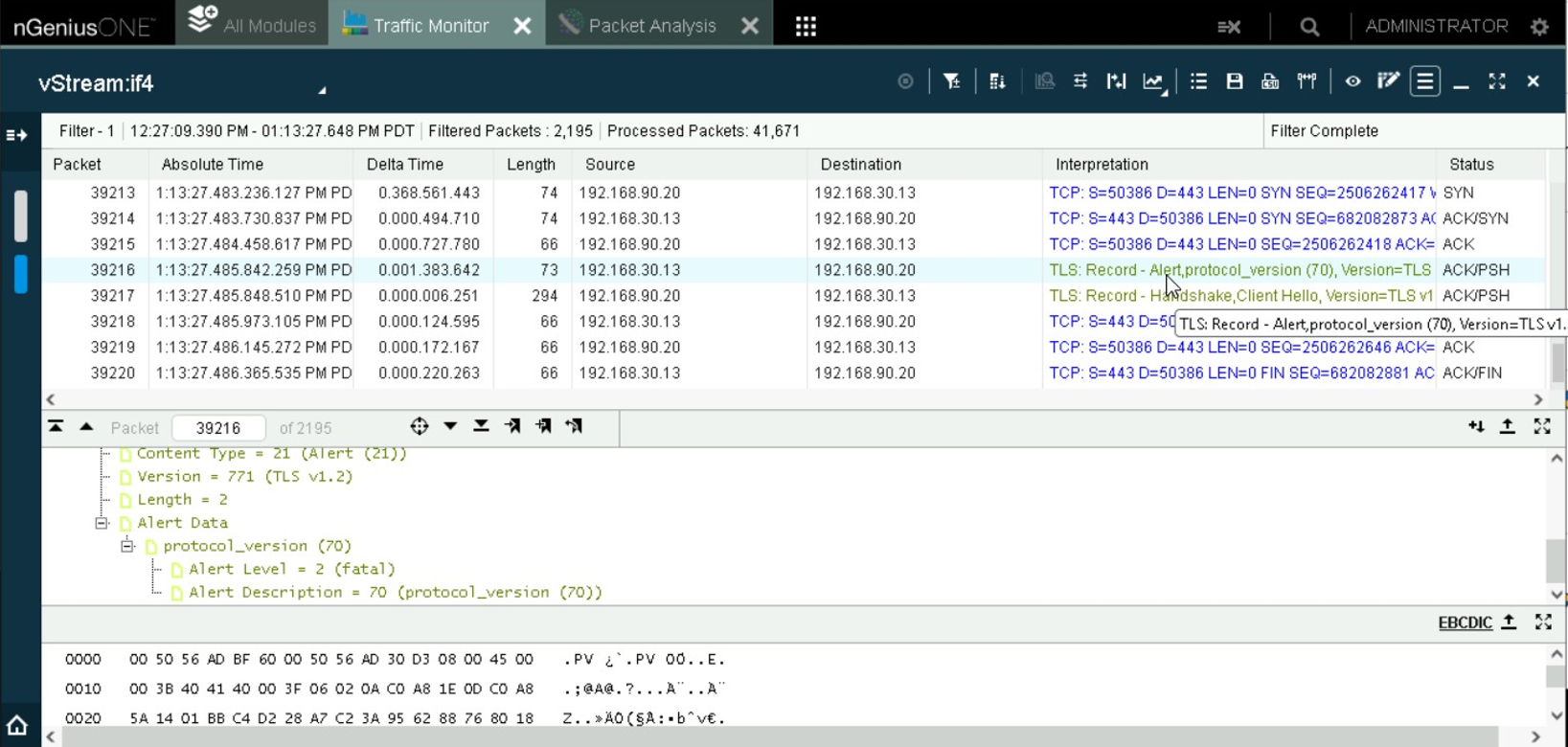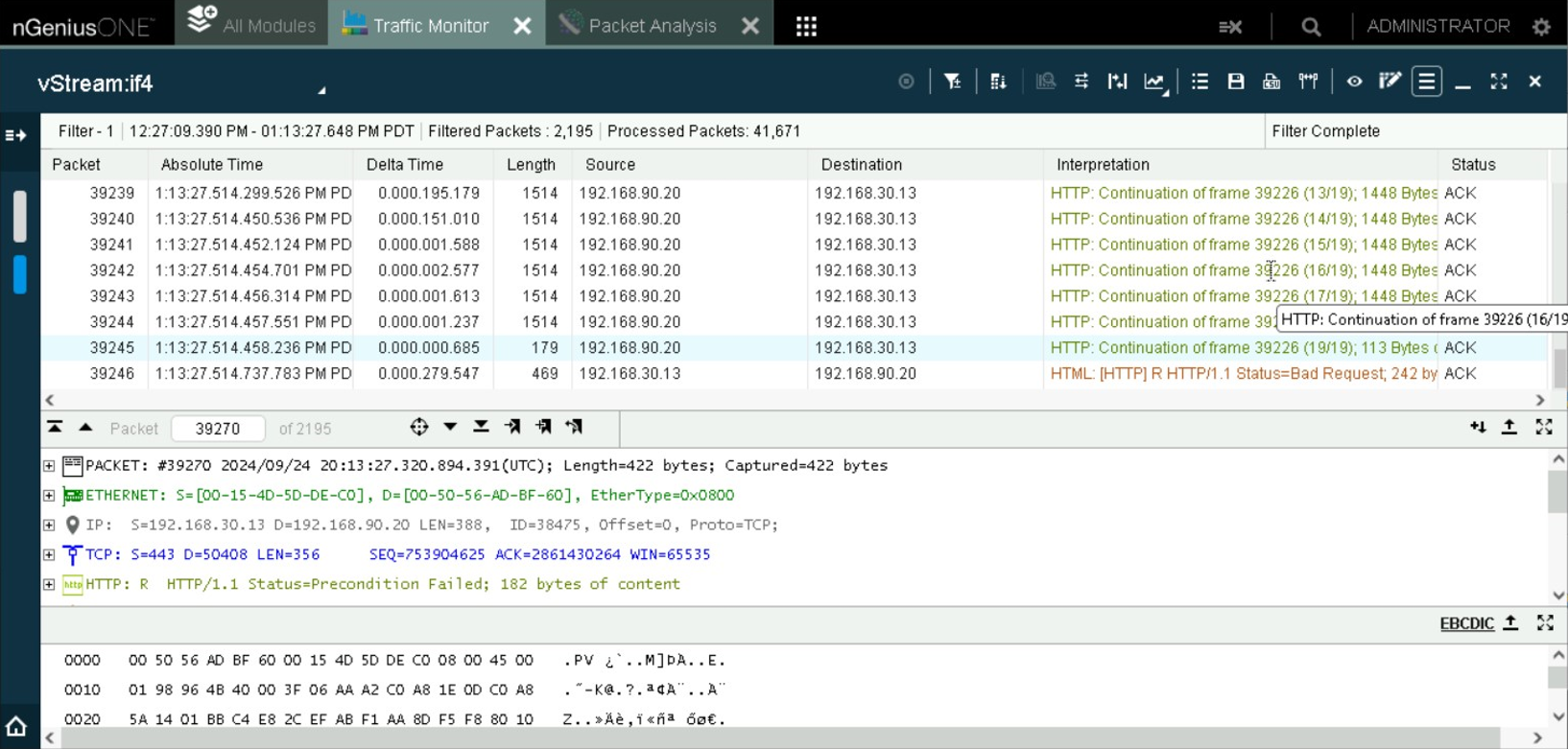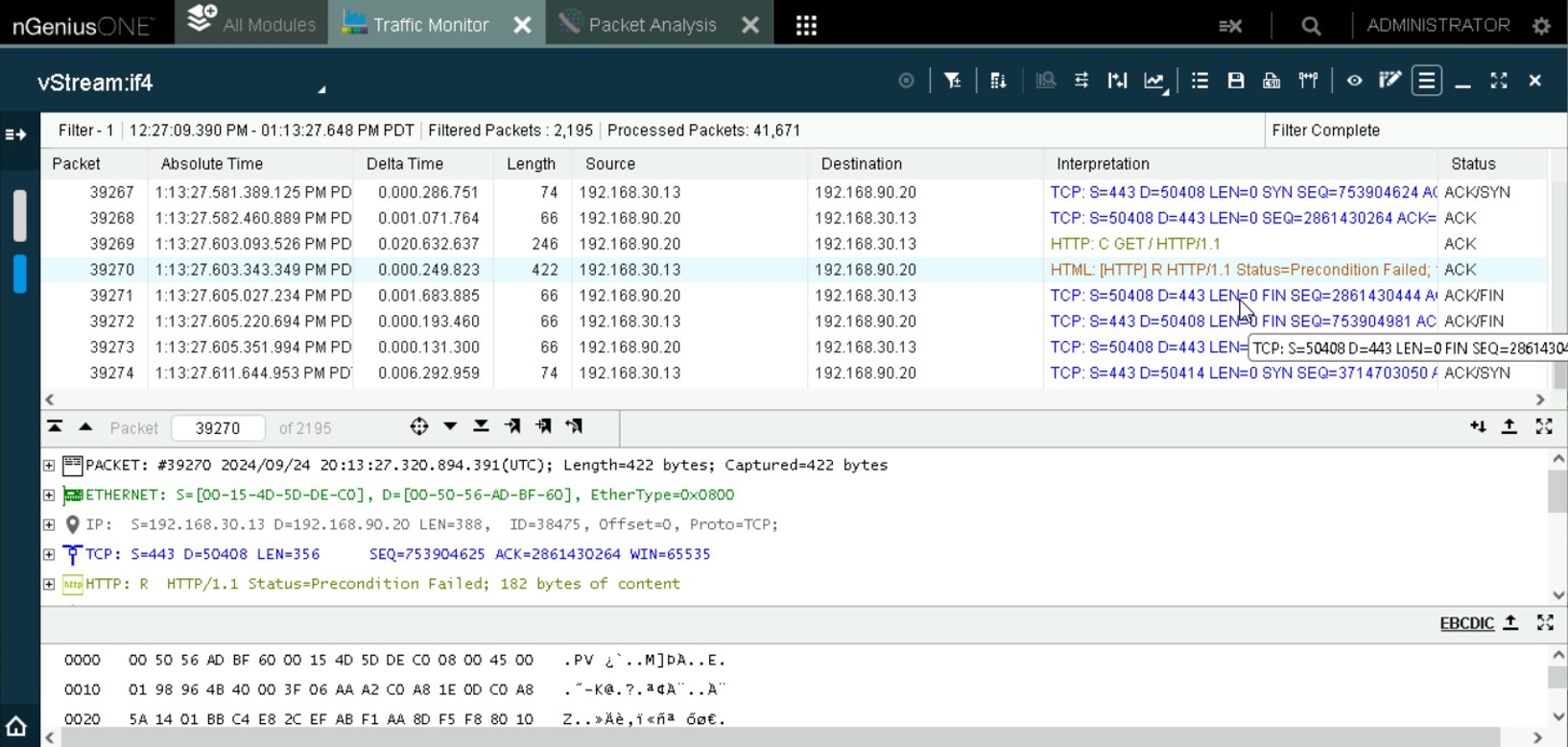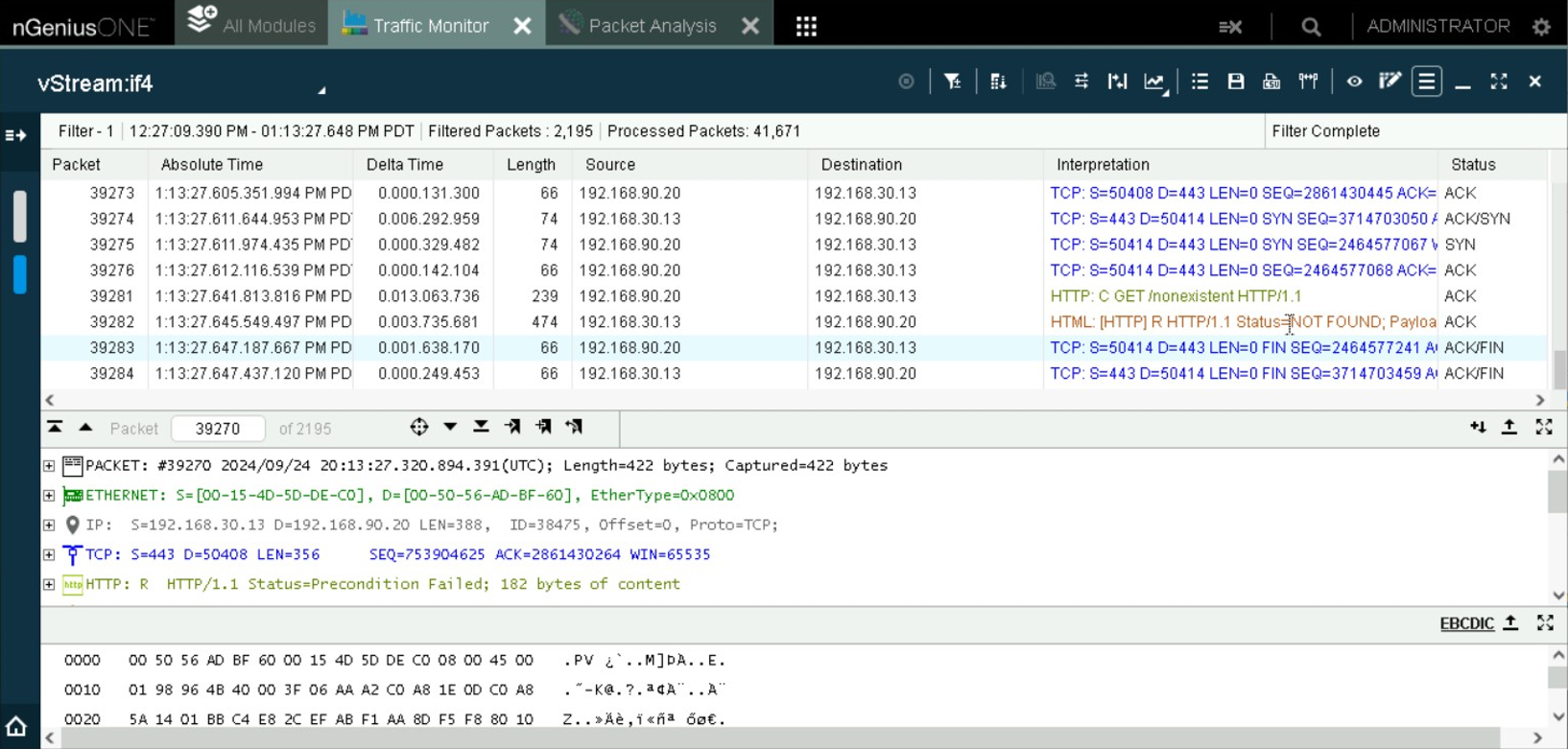Scenario 1.3: Error Code Logging (Layers)#
Purpose#
Identify, collect, and report on protocol-specific error status codes for services (Layer 4, 5, 6, and 7-type status codes).
Description#
This demonstration shows how decrypted traffic can be utilized to identify, collect, and report on layer-specific errors in an HTTP stack. A traffic generation script is used to produce error codes on various OSI layers in order to demonstrate the visibility of these errors at various levels.
Procedure#
Run script1.3 to generate errors on layers 4, 5, 6, and 7.
Observe the layer specific error codes in NetScout’s Packet analysis tool.
Expected Outcome#
The layer-specific error codes are visible in NetScout.
Passive |
Active |
||||||
|---|---|---|---|---|---|---|---|
Bounded Life-Time |
Exported Session Key |
Break & Inspect (Mira) |
Break and Inspect (F5) |
||||
Real-Time |
Post-Facto |
Real-Time |
Post-Facto |
Real-Time |
Post-Facto |
Real-Time |
Post-Facto |
Pass |
Pass |
Pass |
Pass |
Pass |
Pass |
Pass |
Pass |
Screenshots#

Layer 4 (TLS) error code in a decrypted HTTP request.#

Layer 5 (Malformed Cookie) error code in a decrypted HTTP request.#

Layer 6 (Encoding) error code in a decrypted HTTP request.#

Layer 7 (404) error code in a decrypted HTTP request.#